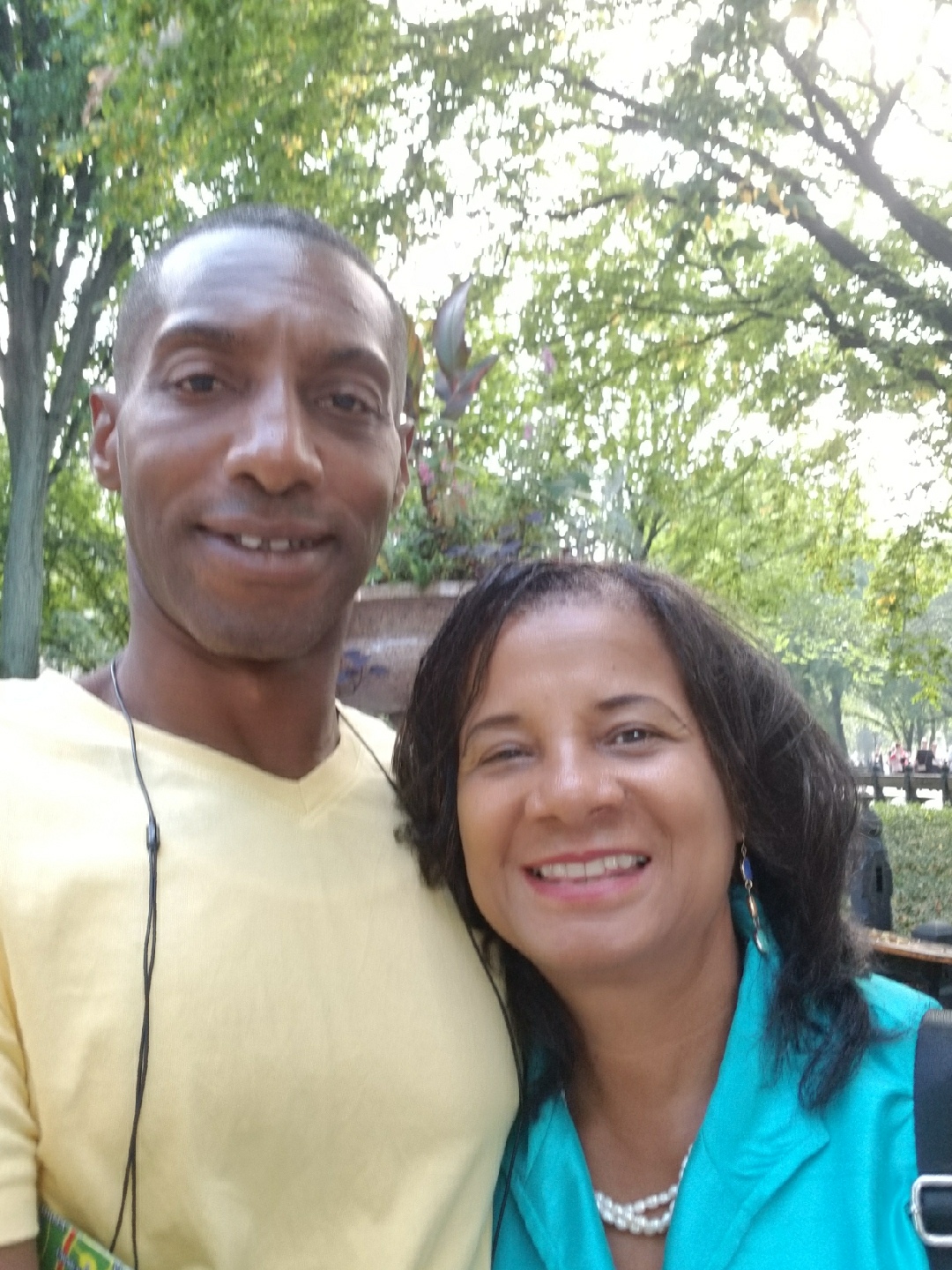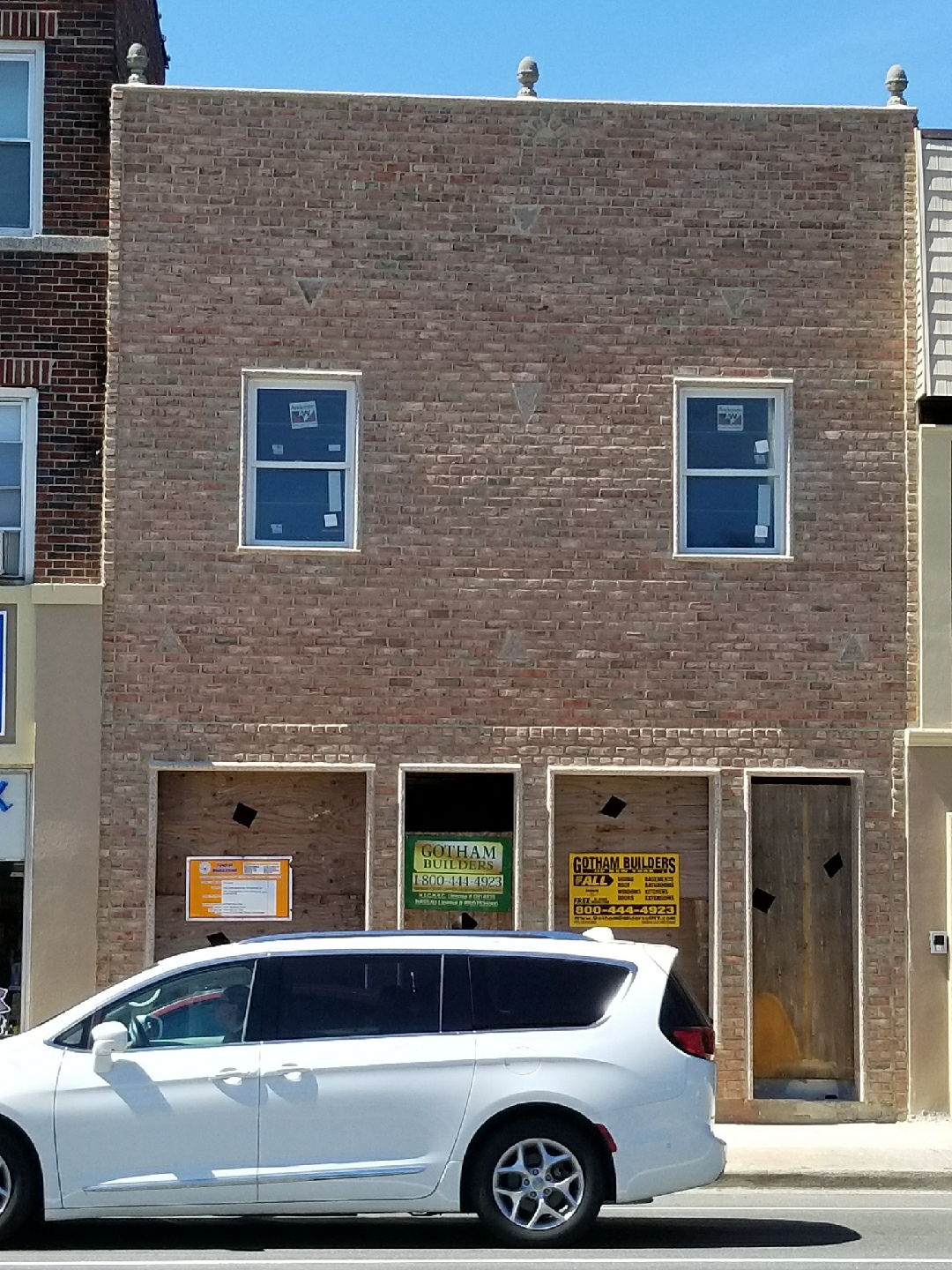In their voices
In their voices
Immigration detention is, in theory, a civil procedure and not punitive incarceration. In reality, it inflicts profound suffering on detained people and their families, as they recount below.
Forced Labor
Pedro Guzmán's Story
Forced Labor
Pedro Guzmán's Story
"There’s so much money they make from us, but they’re not investing any money in detainees. I have two dogs, and I treat my dogs much better than the detainees are treated in there.” - Pedro Guzmán
Private prisons and county jails force detained immigrants to work to maintain their facilities, usually paying them less than $1 a day and sometimes not at all. Exploiting the labor of detained immigrants allows companies to avoid paying the federal minimum wage to outside contractors.
Pedro Guzmán, a chef, came to the United States when he was eight years old. He had immigration status, but did not realize that it lapsed in 2008 because immigration officials sent a notice to the wrong address. So when ICE officers showed up at his house one morning to take him into custody, while he was loading his car with donation bags to take to Goodwill, he was taken completely by surprise. They handcuffed him in front of his U.S. citizen wife Emily and three-year-old son Logan, who was three years old.
Mr. Guzmán was detained for 19 months in Stewart Detention Center, a private prison in Georgia. To visit him, Emily and Logan had to drive ten hours each way from their home in North Carolina. At Stewart, Mr. Guzmán was put to work in the kitchen, where his shift began every morning at 2 a.m. If he was late, the guards threatened him with solitary confinement. At one point, he was forced to work when sick with fever. For this, he was paid $1 a day. All of Mr. Guzmán’s earnings went straight back into the coffers of the prison company, since he had no choice but to purchase food, hygiene products, and phone cards to call his family from the facility's commissary.
Finally, after more than a year and a half in detention, Mr. Guzmán won his deportation case and was released. Although he is now a green card holder, Mr. Guzmán and his family are tens of thousands of dollars in debt due to the legal fees and lost income incurred during his lengthy detention.
Family Suffering
Patrick Thaxter's Story
Family Suffering
Patrick Thaxter's Story
"If it was just for me, I would have left but I feel like if I leave my girls here, I would be abandoning them. I need to stay here for them.” - Patrick Thaxter
Immigration detention doesn't only harm the people detained. Their families, deprived of the emotional and financial support of their loved ones for months and years, also suffer. They are frequently evicted from their homes because of their lost source of income, the children suffer psychological trauma, and savings are exhausted on legal fees and travel costs to visit those detained in facilities hours away from their homes.
Patrick Thaxter, a longtime green card holder, is the loving father to five U.S. citizen children. For years, he worked as a chef at a Caribbean restaurant in Philadelphia to support his family, and picked his children up from school every day. Mr. Thaxter was Vice President of the Parent-Teacher Association at his youngest daughter's elementary school. After school, he took them to the park, to the movies, and helped them with their homework. As he explained, "“It is a blessing to have kids. I never had a father figure growing up and I want to be there for my children, always.”
Photo courtesy of Patrick Thaxter.
This fulfilling life fell apart when Mr. Thaxter was taken into immigration custody at York County Prison outside of Philadelphia. Unable to afford rent, his children--the youngest of whom was seven--were evicted and were forced to move to Georgia to live with their aunt. Before their eviction, Mr. Thaxter’s children had been able to visit him in detention every other week. But afterwards, with a heavy heart, Mr. Thaxter told them to stop coming. The trip — a thirteen-hour drive in each direction — was just too expensive and emotionally exhausting. Patrick tried to parent by phone as best he could but his daughters, who had all been honor roll students, suffered academically and socially due to the stress of being separated from their father.
When Mr. Thaxter was finally released after three years in detention, the first thing he did was go with his family to celebrate at Red Lobster. But as his former wife lamented, "My girls can’t get back the three years they lost of their father. Patrick is such a devoted father, and our immigration system took him away from his family for no reason. It ripped our family apart, and we are still trying to recover from it.”
Abuse
Gretta Soto Moreno's Story
Abuse
Gretta Soto Moreno's Story
“I was losing my mind. I was verbally attacked by officers and detainees all the time. They even used a flashlight [to check my cavities]. They drill it so much in our brains that when we’re outside, we’re still afraid of people.” - Gretta Soto-Moreno
Photo courtesy of Gretta Soto Moreno
Gretta Soto Moreno is a transgender asylum-seeker who fled to the United States to escape the years of sexual assault, beatings, and threats she suffered in her home country. Little did she know that U.S. authorities would detain her for three years and expose her to the same abuse she sought to flee.
For two of the three years, Gretta was detained in an all-men’s unit in Eloy Detention Center in Arizona.There, she was subject to strip searches by male guards who touched her inappropriately, and frequent, demeaning insults from the guards and other inmates. She filed repeated grievances, to little result.
ICE then transferred Gretta to a unit for LGBT detainees in the Santa Ana City Jail in Southern California, and she was hopeful that her treatment would improve. But she found that the full body cavity searches at Santa Clara were even more frequent and invasive than at Eloy, and performed by guards who told her and other asylum-seekers to “act male” and use their “male voices.” In both facilities, Gretta was denied access to the hormonal therapy medications she needed.
In 2016, Ms. Soto Moreno was released on a Rodriguez bond and placed on an electronic monitor. She now lives in Los Angeles, studying for her high school diploma while she awaits the outcome of her asylum case.
Solitary Confinement
Astrid Morataya's Story
Solitary Confinement
Astrid Morataya's Story
Perhaps nothing illustrates the cruelty of immigration detention more clearly than the widespread use of solitary confinement as a tool to punish and control. A person held in solitary confinement is locked in a cell for 23 hours a day. Many facilities impose this extreme form of punishment on detained immigrants for wholly arbitrary reasons or for perceived offenses as minor as having apple sauce in your cell.
"I love this country as much as anyone who was born here, I’m just as American as the next American. I don’t call any other country my home. I just never thought something like this would happen to me.” - Astrid Morataya
Astrid Morataya is a green card holder who came to the United States when she was eight years old, fleeing the civil war in Guatemala. A survivor of horrifying domestic abuse, she worked hard as a single mother to build a life for herself and her three U.S. citizen children.
In immigration detention, Astrid experienced just how arbitrary and punitive solitary confinement was. She was twice placed in solitary confinement. Her offenses? Having a sugar packet in her pocket that she forgot to dispose of at mealtime, and lagging behind her cellmates as they left the cell because she had begun menstruating and was trying to secure menstrual pads.
During the two and a half years she was detained, Astrid did the best she could to continue to support her children, but it was difficult. They had to relocate to live with family in Iowa, a six-hour drive away. She saw them just three times in the years she was detained, and was helpless as her youngest child became the subject of a traumatic custody battle due to Astrid's detention.
Astrid was ultimately granted a "U Visa" based on her cooperation with law enforcement in testifying against her abuser in court, and is now back together with her children. But the two and a half years she missed of their childhood - including her youngest daughter’s first day of kindergarten and her son’s high school graduation - she will never get back.
No End in Sight
Arnold Giammarco's Story
No End in Sight
Arnold Giammarco's Story
Many immigrants are detained for as long as it takes for their immigration cases to be decided so they have no certainty as to when they will be released. The actual length of detention - which extends to months and years - often depends on factors over which people in detention have no control, such court backlogs. This indeterminacy inflicts real physical and psychological harms on individuals and the families from which they are separated.
Arnold Giammarco is a lawful permanent resident of fifty years, a husband and father to U.S. citizens, and a U.S. Army and National Guard veteran. His 18-month detention took such a toll on him and his wife, Sharon, and daughter, Blair, that he abandoned a good-faith citizenship claim and accepted an order of deportation, as he explains:
"At first, four or five days a week, Sharon would drive Blair an hour and a half up from Groton, Connecticut, to visit me in Dartmouth, Massachusetts. I could only see them from behind glass. Blair was 2, and she didn't understand why I wouldn't pick her up — she would cry and reach for me. I tried to make up games: Blair would move her hand on one side of the glass, and I would follow her motions with my hand on the other side."
"Soon, Sharon cut the visits to once a week, on Sundays. Gas was expensive, and the trip was hard on Blair. The legal battle had drained our "piggy bank" of a few thousand dollars we'd been saving for Blair to go to college, and my parents' pension fund. It was devastating to see my family struggle, emotionally and financially. I worried I was wasting my family's energy and money. Eventually, rather than staying on to fight my case from behind bars, I accepted deportation to Italy, a country where I barely speak the language."
"Now I'm living in a central Italian town called Campo Di Fano. I try to Skype with Blair twice a day, when she wakes up in the morning and after school. I help her with her homework, like I would if I was there. She'll set up the iPhone on the dresser and do a dance routine for me. All I want is to go home and take care of her and Sharon.
Mr. Giammarco eventually returned home in July after being naturalized as a US citizen at the embassy in Rome. His family reached a settlement with USCIS that allowed Arnold to reapply for citizenship.
No Access to Help
Alex Lora's Story
No Access to Help
Alex Lora's Story
Detention deprives people of a fair shot in their immigration cases. Unlike defendants in criminal cases, immigrants in deportation proceedings do not have the right to a court-appointed lawyer, and many are not able to afford a private lawyer. The remote locations of many detention centers make it extra difficult for detained immigrants to find legal representation. Detention facilities also charge exorbitant rates for the phone calls - up to a dollar a minute - that are the only way for many people to stay in touch with their lawyers and families. This is why in many places, less than 10% of people in detention win their cases, even though the success rate for immigrants facing deportation overall is over 50%.
"They tell you that if you want to leave, sign - get deported. After 15 days of being in there, I just wanted to sign and get out. - Alexander Lora
Alex Lora, a lawful permanent resident since the age of seven, came close to accepting an order of deportation when he was put into immigration detention. He didn't for two reasons. First, when Alex was taken into custody, his two-year-old son was placed in foster care, and he was determined to fight to bring him home. Second, thanks to a first-of-its-kind pilot program in New York, Mr. Lora was appointed an immigration lawyer funded by the City Council who convinced him to fight his case. In the video (left), Alex speaks about his ordeal in detention, and how he was able to fight to keep his family together with the help of his lawyer.
Long Term Impact
Sayed Omargharib's Story
Long Term Impact
Sayed Omargharib's Story
Mr. Omarigharib at his hair salon, before detention.
Mr. Omargharib was a lawful permanent resident for twenty-eight years and a successful hairdresser in Washington, D.C. for over ten years when he was detained. He was charged as a removable “aggravated felon” due to a larceny conviction for taking two pool cues following a dispute with an opponent in a local pool league. Mr. Omargharib served no jail time for his conviction. But he spent nearly two years in immigration detention before he was released and his removal case was terminated.
After five months of detention, the immigration court finally held a Joseph hearing for Mr. Omargharib, but rejected his arguments that his conviction was not an aggravated felony under correct application of the law and ordered his deportation.
In 2014, the U.S. Court of Appeals for the Fourth Circuit ultimately agreed with the argument Mr. Omargharib had advanced at his Joseph hearing nearly two years prior, holding that his conviction was not an aggravated felony. That decision confirmed that Mr. Omargharib had never been deportable – or detainable – at all.
Upon his release Mr. Omargharib had lost both his home and means of supporting himself. Unable to satisfy business expenses and child support while detained and unemployed, his credit was destroyed. He missed his son’s high school graduation and the two became estranged. In Mr. Omargharib’s prolonged absence from the community, his clientele left permanently for other salons and he was unable to replace them. Now homeless, Mr. Omargharib is temporarily sleeping in a friend’s basement in Virginia. He still plans on applying for citizenship within the year.
No Other Option
Pierre Michel's Story
No Other Option
Pierre Michel's Story
Mr. Michel on vacation with his finacee.
In 1971, at the age of three, Pierre Michel came to the United States from Haiti, entering the country as a lawful permanent resident. Mr. Michel traveled with his father and sister to join his mother, who had been living in New York since 1968. The family reunited in Brooklyn, and throughout Pierre’s childhood his mother worked as an au pair for a family (which she stayed with for 49 years), as well as in maintenance and in a law office while his father worked as a sheet metal worker. New York soon became the only place Pierre called home.
As a young man, Pierre fell into problems with drugs and alcohol, leading to several nonviolent convictions. Although committed to rehabilitation, he was detained by ICE on the basis of his convictions and held in Bergen County Jail without a bond hearing.
Separated from his family, he was forced to stay in detention until his application for cancellation of removal could finally be considered a year and a half later.Working with a Legal Aid attorney, Pierre fought for his release from detention and his right to stay in the United States among his family and his community. Considering his strong equities and family ties, an Immigration Judge granted Pierre cancellation and only then was he released.
Pierre continued his rehabilitation after his release, going to school for a GED, working and paying taxes, and traveling with his family. He now has a job at a construction company. Some aspects of his life remain complicated due to his status as a non-citizen with criminal convictions: His driver's license was revoked, initially for five years which was then extended to twenty-five. Luckily, Pierre can count on a vast and supportive network of family and friends to get him to and from work -- some are not as lucky. Moreover, Pierre is now engaged to his long-term partner, Nicole, and able to enjoy the simple pleasure of a vacation abroad with her.
















